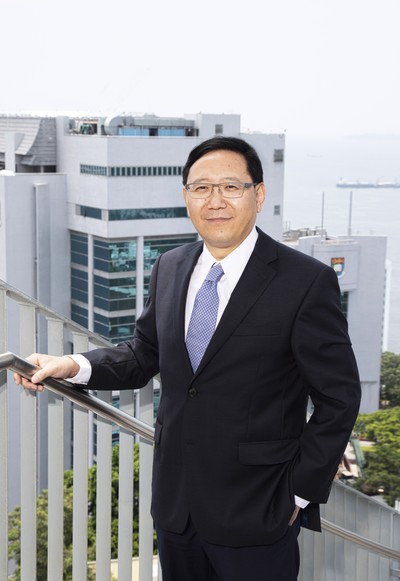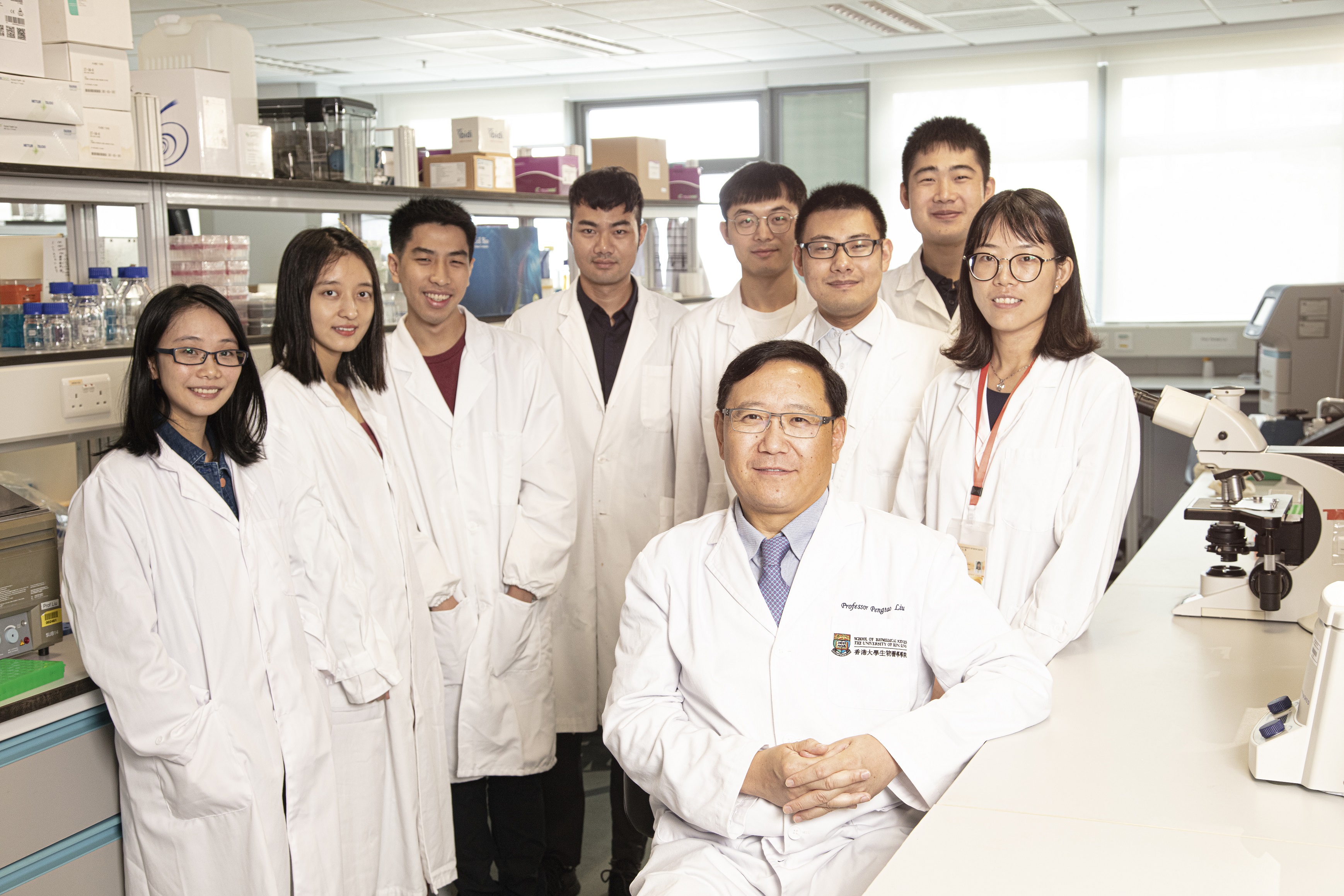Knowledge Exchange
Dec 08, 2020
Prof. Pengtao Liu's study has been featured in recent Medical Faculty News

Professor Pengtao Liu
Centre for Translational Stem Cell Biology 幹細胞轉化研究中心
BREAKTHROUGHS IN STEM CELL RESEARCH

Stem cells hold great promise for regenerative medicine and therapeutics. HKUMed recently opened a new pathway in the stem cell field through the development of expanded potential stem cell (EPSC) technologies. These new stem cells generate not only all types of cells in an individual but also the “extra-embryonic” cells (for the placenta and yolk sac) that support foetus development in pregnancy. The EPSC technologies offer rich potential for research and HKUMed will capitalise on this seminal discovery through the establishment of Centre for Translational Stem Cell Biology (CTSCB), aiming to develop world-leading stem cell technologies and to apply them to regenerative medicine, organ transplantation, and genomic medicine.
The CTSCB is led by Professor Pengtao Liu, who first successfully established EPSCs from mice in 2017 and subsequently extended this technology to humans, pigs and other animals. Conventional embryonic stem cells origin from the blastocyst with one hundred cells. In contrast, EPSCs are established from much earlier pre-implantation embryos of as few as four cells and are thus more primitive and have higher potential. Moreover, EPSCs are genetically stable, and permit efficient and convenient genome-editing. These properties and molecular features of EPSCs open up new opportunities for translational researches in medicine, biotechnology and agriculture.
Professor Liu and scientists from HKUMed will work closely with colleagues of Cambridge University on the following research programmes. In the first programme, they will gain deeper knowledge about EPSCs, and develop the next generation stem cell technology. They will also use human EPSCs as a cell factory for generating multiple cell types including blood cells (immune cells), liver cells and lung cells. These cells will be used in the second programme to study liver and heart disease, to develop in vitro and in vivo assays for drug testing, cell-based therapies and organ transplantation, in collaboration with scientists in Mainland China, Europe and the UK. In the third programme, scientists will derive EPSCs from patients to study immune disorders and to develop personalised “assays” for testing their immune response to stimulation and for assessing drug candidates for these diseases.
“In the near future, we will develop novel stem cell technologies, intellectual properties, and products which will have broad applications in regenerative medicine, organ transplantation and genomic medicine. Our research outcomes will provide enormous economic and commercial benefits and contribute to transforming Hong Kong into a global innovative hub,” Professor Liu said.
Full column of the Medical Faculty News is available here.
擴展全能幹細胞⸺胚胎幹細胞研究的里程碑式突破
幹細胞技術在再生醫學和臨床治療方面的廣闊前景,將徹底改變 21 世紀。近幾年來,港大醫學院通過建立「幹細胞轉化研究中心」發展領導全球的創新科技,利用世界領先的幹細胞相關技術和基礎研究,為再生醫學、器官移植、基因藥物等多個生命科學領域提供重要的原創動力。
劉澎濤教授作為「幹細胞轉化研究中心」的首席科學家,他的課題組及其合作團隊致力於擴展全能幹細胞(EPSC)譜系的研發,相關成果已成為胚胎幹細胞領域的里程碑式突破。自 2017 年從小鼠胚胎中首次提取出 EPSC 後,該團隊不斷優化提取分離技術體系,並應用在人體、豬、牛等多種動物。傳統意義上所指的胚胎幹細胞,一般是來自於具有上百個細胞的著床前胚胎(又稱囊胚),但 EPSC 的分子特性類似於著床前四細胞階段的極早期胚胎細胞,其分化程度非常小,較其他胚胎幹細胞具有更大的分化潛能;且 EPSC 具有遺傳的穩定性和高效的基因編輯能力,使其應用範疇更加廣泛。EPSC 不僅僅可以分化為機體各種組織類型的細胞,還可以分化為胚胎外細胞(包括胎盤和卵黃囊細胞)譜系,而恰恰是這種獨特的潛能為胚胎的發育形成提供了極為重要的支撐,這也是傳統胚胎幹細胞所無法比擬的突破性特質。
劉澎濤教授及其團隊與劍橋大學的科學家合作推進三個方向的科學研究。一、從發育生物學角度深入研究 EPSC 形成的內在分子機制,在此基礎上將人類 EPSC 生產血液細胞(包括免疫細胞)、肝臟細胞和肺臟細胞等功能細胞。二、 EPSC 來源的細胞將用於肝臟及心臟疾病的研究中,通過與來自中國、歐洲等國家的科學家合作,共同研發離體和在體的細胞或動物模型,從而用於藥效評估、藥物篩選、細胞治療和器官移植研究。三、與劍橋大學的科學家合作,將從免疫缺陷病人的體細胞建立 EPSCs,用於研究免疫 系統疾病的機理,並應用於個性化診斷方法的研發及藥物篩選。
劉澎濤教授表示:「在未來幾年,我們將發展和建立嶄新的 EPSC 技術體系,應用於再生醫學、器官移植、基因藥物、疫苗、農業及環保等廣泛的生物醫藥領域。相信這些科研成果能產生巨大的經濟及商業效益,更可令港大醫學院發揮全球幹细胞創新科技中心的重要角色。」
按此可閱覽原文。

